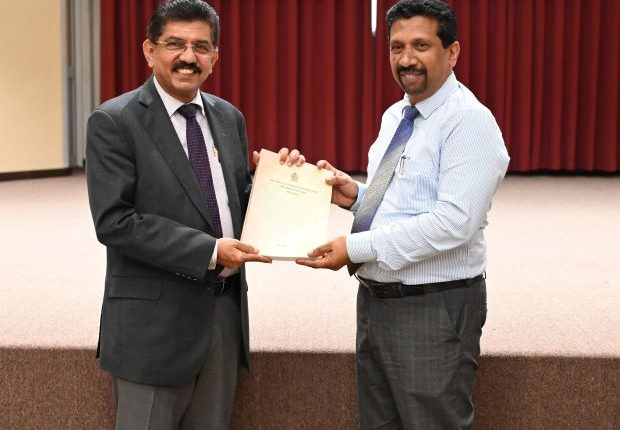Sri Lanka launches Nationally Determined Contributions Implementation Plan
Accelerating implementation of climate action targets
COLOMBO – From record-breaking temperatures to increasing extreme weather events, in 2022 alone Asia recorded 81 weather, climate, and water-related disasters that directly affected more than 50 million people, costing US$ 36 billion in economic damages according to the World Meteorological Organization’s State of the Climate in Asia report.
The global landscape is changing dramatically with the climate crisis becoming the new normal. Sri Lanka too is reeling from multiple crises and with climate change impacts already being experienced, recovery comes at a high cost. Sri Lanka annually spends LKR 50 billion on climate-induced post-disaster contingent liabilities that arise through floods, droughts, landslides, and storms including relief assistance for damages incurred to housing, infrastructure, agricultural crops, and businesses.
The Paris Agreement lays out a collective framework for all countries to address climate change. But reports come in that there is still limited progress in reducing the emissions gap by 2030, and there is a global call to scale up climate action to keep the 1.5°C objective within reach.
Responding to this call, led by the Ministry of Environment and supported by the United Nations Development Program’s (UNDP) Climate Promise Phase II Project, Sri Lanka has ramped up their commitment to achieving the Nationally Determined Contributions (NDCs) and has outlined targets in an Implementation Plan till 2030, focusing on an integrated, holistic approach to enable transformative impact across sectors.
To launch Sri Lanka’s NDC Implementation Plan, a briefing was held on Wednesday (15) afternoon in collaboration with the Ministry of Environment. Speaking at the high-level forum, Dr Anil Jasinghe, Secretary, the Ministry of Environment noted that Sri Lanka had accelerated its climate action through the launch of the Climate Prosperity Plan at COP27 and that the revised National Policy on Climate Change (2023) and 2050 Carbon Net Zero Road Map and Strategy were expected to be launched at COP28 this year.
“The NDCs act as the base for these strategic interventions and implementing the NDCs will lead to increasing Sri Lanka’s share of renewable energy, adopting adaptation interventions and increasing our coping capacity and resilience to climate disasters,” he said.
Sharing progress on Sri Lanka’s NDCs, Dr R. D. S. Jayathunga, Additional Secretary (Environment Development), Ministry of Environment highlighted that the NDCs were a nexus and linking point through which the national sustainable development targets including the targets laid out in our National Environment Action Plan and National Adaptation Plan can be reinforced.
Operationalizing the NDC Implementation Plan, especially the unconditional targets will require mobilizing significant financial resources and exploring innovative financial instruments and different sources of finance including the private sector. Malin Herwig, Officer-In-Charge, UNDP shared that smart investments in the NDC sectors and targets can stimulate economic recovery and set Sri Lanka on a trajectory to carbon-neutral pathways and improve climate resilience over the longer term.
The NDC Implementation Plan sets out a blueprint for immediate climate action. With the first global stocktake of progress on the Paris Agreement scheduled for discussion at the 28th session of the Conference of Parties (COP28) in Dubai later this year, it is an opportunity for all countries to course correct and accelerate action to tackle the climate crisis.
-UNDP/ENCL



Comments are closed, but trackbacks and pingbacks are open.